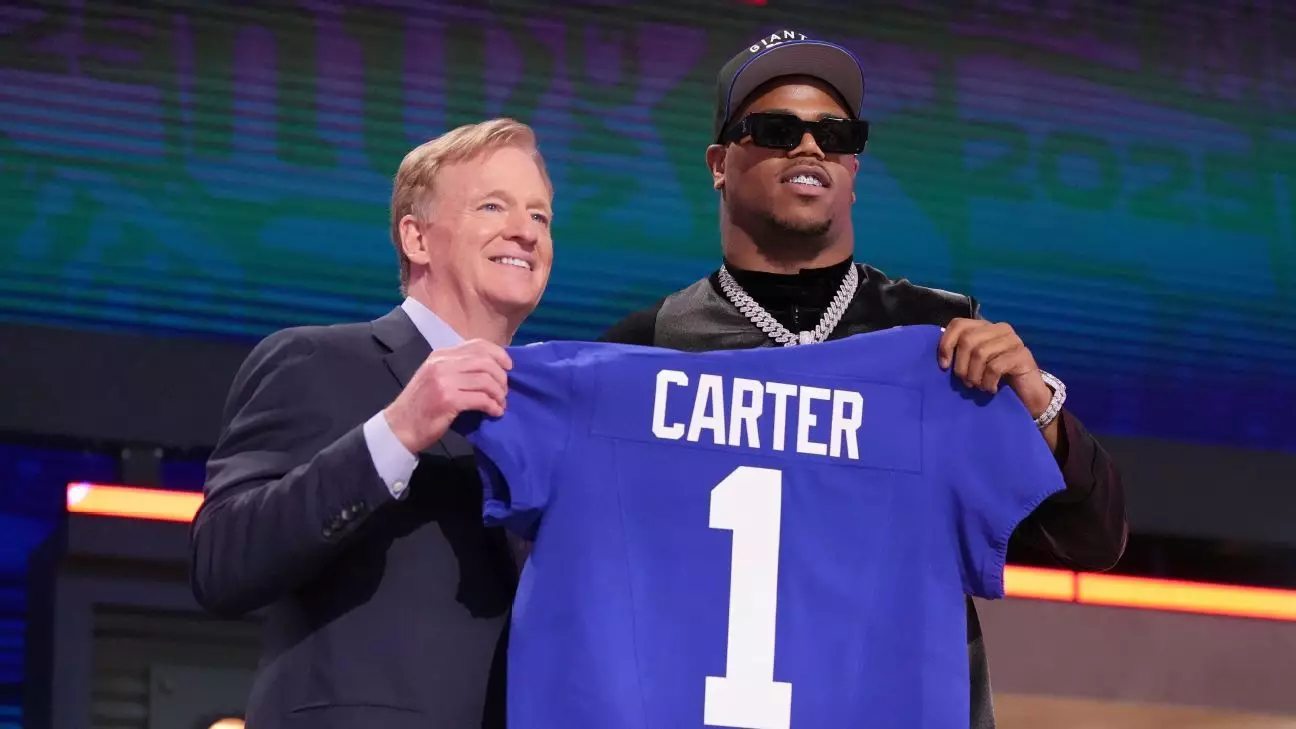The NFL draft, a celebration of talent and dreams, has recently found itself tainted by a series of prank calls that have ignited anger and frustration among players and agents alike. The latest incident involves New York Giants rookie Abdul Carter, who, along with his agent Drew Rosenhaus, received a misleading call during a pivotal moment in his career. This particular call, allegedly from the Jacksonville Jaguars, claimed that Carter would be the second overall pick. This deceptive prank not only undermined the hard work and dedication of the players but also displayed a concerning lack of respect for the integrity of the draft process.
How the NFL should address pranks against players
In an age where technology allows for anonymity, it’s regrettable that some individuals abuse this tool to disrupt the lives of young athletes. Both Carter and Rosenhaus swiftly recognized the call as a hoax, thus preventing any undue panic or false expectations from reaching their families. It’s this understanding that brings to light an essential discussion: how can the league ensure a culture of respect during such an important event? The NFL’s recent fine of two hundred fifty thousand dollars levied against the Atlanta Falcons for a prank call made to now-Browns quarterback Shedeur Sanders only scratches the surface of what is needed.
The NFL must take a firmer stance on these types of behaviors by implementing more stringent consequences for those involved in prank calls. Beyond fines, the league could actively engage in an educational campaign that addresses the repercussions of such actions not only on the affected players but also on the integrity of the organization as a whole. Despite the humor that some might find in these pranks, they are a hostile act that can tarnish the already high-stakes atmosphere of the draft.
The Ripple Effect of Disrespectful Actions
The impact of prank calls extends beyond individual athletes; they threaten to create a wave of distrust among players, teams, and the media. Other draftees, such as Mason Graham from the Cleveland Browns and Tyler Warren from the Indianapolis Colts, have also reportedly experienced similar disturbances. This behavior fosters an environment where players might become wary of future communications from teams, inadvertently affecting their relationships with organizations they hope to join.
The draft is not just a professional milestone; it’s often an emotional climax for athletes and their families—an event that symbolizes years of hard work, sacrifice, and dreams realized. When individuals take it upon themselves to undermine such a significant occasion, they diminish the experiences of everyone involved. There is a clear need for accountability and respect, particularly in a setting that should celebrate achievement rather than mock it.
Encouraging a Culture of Respect
By addressing these troubling incidents, the NFL has the opportunity to demonstrate its commitment to supporting its players and upholding the dignity of the draft. It is imperative for the league to send a clear message that disrespecting players—no matter how insignificant it may seem—will not be tolerated. Fostering an environment where integrity and sportsmanship are paramount can only enhance the reputation of the league and the experiences of its athletes. In an era where the eyes of aspiring athletes are on them, leaders must ensure that respect reigns supreme in every aspect of professional sports.


Leave a Reply